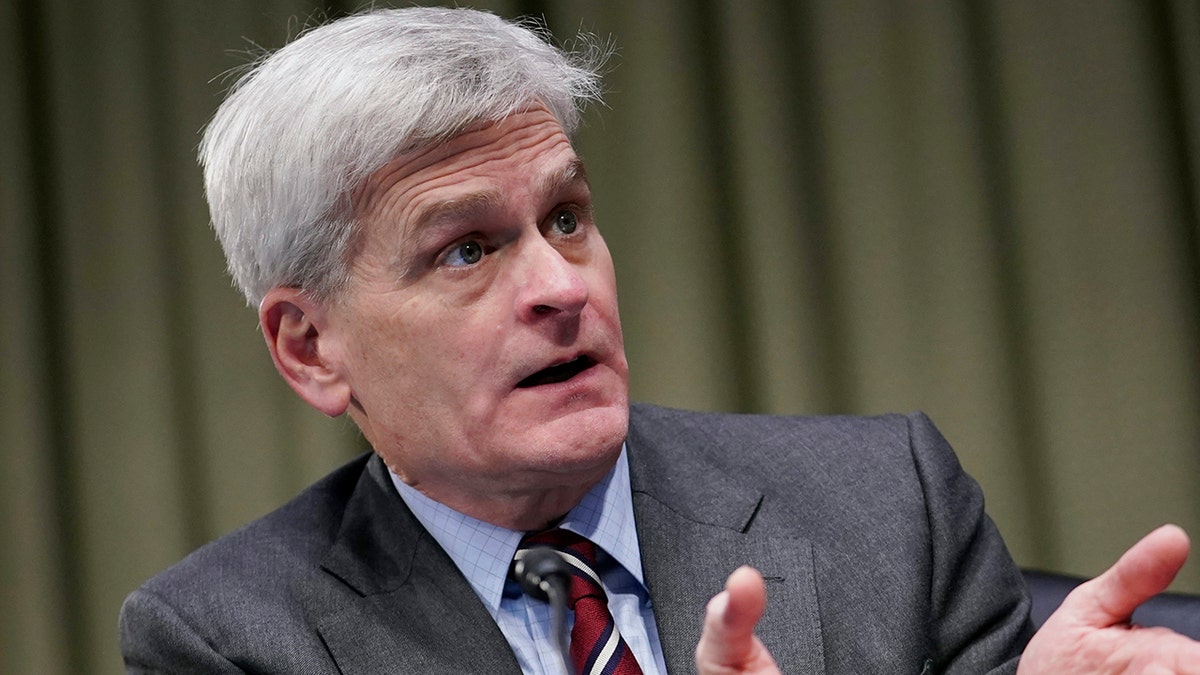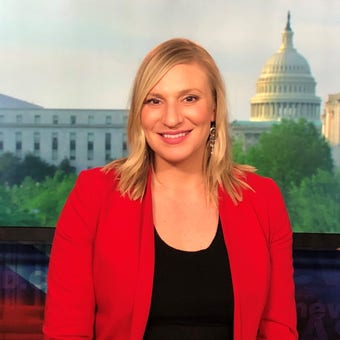Trump defense team claims Capitol riot not connected to Trump rhetoric
FOX News congressional correspondent Chad Pergram has the latest from Capitol Hill on 'Special Report'
The second impeachment trial for former President Trump wrapped up a key phase Friday night and could head for a vote on conviction as soon as Saturday.
Trump's defense team presented its case Friday, taking just about three hours of their 16-hour allotted time. Then senators spent the next two-and-a-half hours peppering the legal teams for both sides with questions that got contentious at times.
The Senate will return at 10 am. EST on Saturday. House impeachment managers could make a request to extend the trial by calling witnesses. If they don't, the trial will head to closing arguments and a vote on whether Trump is guilty of "incitement of insurrection."
Friday evening gave the 100 senators who serve as Trump's jury their first chance to participate in the trial after sitting through lengthy legal arguments that kicked off in earnest on Tuesday. Senators posed 28 questions in total to the legal teams.
TRUMP IMPEACHMENT DEFENSE TEAM PUTS DEMOCRATS ON TRIAL FOR PAST HOT RHETORIC: 'STOP THE HYPOCRISY'
The questions from Republicans who are viewed as potential votes to convict were closely watched. GOP Sens. Susan Collins of Maine, Lisa Murkowski of Alaska, Mitt Romney of Utah and Bill Cassidy of Louisana asked Trump's legal team for more information on what the president knew of the security breach at the Capitol or the danger that his Vice President Mike Pence was in as a result.
But a defiant Trump legal team largely declined to provide any details about Trump's knowledge of the attack and blamed the House impeachment managers' "zero investigation" for the lack of answers.
Cassidy asked about Trump's derogatory tweet about Pence on Jan. 6 shortly after a phone conversation he had with Sen. Tommy Tuberville who informed Trump that Pence had to be evacuated from the Senate. "Does this show that President Trump was tolerant of the intimidation of Vice President Pence?" Cassidy said in his written question.
Trump’s lawyer Michael van der Veen said he disagreed with the facts Cassidy used to ask the question and dismissed the Tuberville account as "hearsay." He said he has "no idea" about the answer because "nobody from the House has given us any opportunity to have any idea."

Sen. Bill Cassidy, R-La., speaks during a confirmation hearing for Secretary of Veterans Affairs nominee Denis McDonough before the Senate Committee on Veterans' Affairs on Capitol Hill, Wednesday, Jan. 27, 2021, in Washington. (Sarah Silbiger/Pool via AP) ((Sarah Silbiger/Pool via AP))
Cassidy said after the trial he was not happy with the response.
"I didn't think it was a very good answer," Cassidy told Capitol Hill pool reporters.
"It obviously wasn't hearsay. Tuberville was right there," he added.
Cassidy, who was photographed earlier in the day with a statement that included an explanation for acquitting Trump, told reporters he still had not made up his mind.
"It was a press release that my team did," Cassidy said. "If I had flipped the page, you would have had the one going the other way."
TRUMP'S IMPEACHMENT DEFENSE RESTS AFTER THREE HOURS: 'THERE WAS NO INSURRECTION'
Van der Veen also sparred with Sen. Bernie Sanders, I-Vt., who asked whether Trump's lawyers would acknowledge that President Biden won the election.
"Who asked that?" van der Veen snapped.
"I did," Sanders yelled back.
Van der Veen retorted: "My judgment's irrelevant in this proceeding."
Sanders replied: "You represent the president of the United States!"
During their defense arguments, Trump's lawyers on Friday blasted the proceedings as an unconstitutional, "sham impeachment" motivated by Democrats' "hatred" for the former president.
His lawyers said it's "absurd" to think Trump was trying to promote insurrection on Jan. 6, based on his rhetoric that day and long history of promoting "law and order" and denouncing mob violence throughout the summer during racial unrest protests in cities.
"No thinking person could seriously believe that the president's January 6 speech on the Ellipse was in any way an incitement to violence or insurrection," van der Veen said. "The suggestion is patently absurd on its face. Nothing in the text could ever be construed as encouraging, condoning or enticing unlawful activity of any kind."
Trump lawyers also argued the former president's political speech is protected by the First Amendment and his words on Jan. 6 to his supporters to "fight like hell" were not meant literally. To drive home that point, Trump's defense played an 11-minute video of nearly every Democrat in the chamber using the words "fight" in their past speeches and interviews.
DAY ONE RECAP: DEMS IN TRUMP TRIAL USE GRAPHIC VIDEO OF CAPITOL ATTACK
"You didn't do anything wrong," David Schoen, a Trump attorney, bellowed at Democrats in the chamber at the end of the video. "It's a word people use, but please stop the hypocrisy."
Democrats panned the move as a false equivalency and an effort to downplay Trump's overarching actions to tell a "big lie" about the election being stolen and to summon a mob to Washington to disrupt a peaceful transfer of power.
"What they are plainly doing is trying to draw a false and dangerous equivalence to distract from Donald Trump inviting and then inciting the mob and then failing his oath of office to protect the Capitol," Sen. Richard Blumenthal, D-Conn., told Capitol Hill reporters Friday.
IMPEACHMENT MANAGER STACEY PLASKETT SUGGESTS TRUMP DEFENSE VIDEOS HOMED IN ON 'PEOPLE OF COLOR'
If the trial concludes Saturday, it would the shortest in presidential history at five days. The previous record was held by Trump in 2020 when his trial related to inviting foreign interference into the election spanned 21 days.








